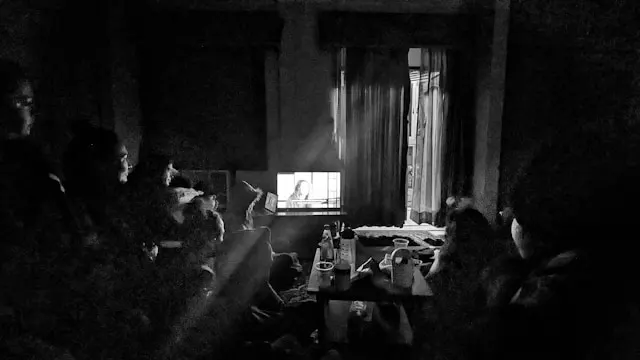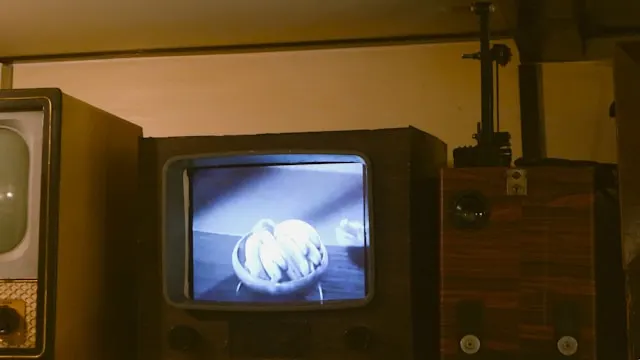Highlights
• Watching science fiction significantly enhanced divergent thinking, a core aspect of creative development, in students with STEM backgrounds.
• Non-STEM students showed reduced creativity after sci-fi exposure compared to nonfiction content.
• Watching science fiction significantly improved divergent thinking in students with STEM backgrounds.
» 4 mins read
Every day, dozens of people lose themselves in science fiction (sci fi) movies for pleasure. Many viewers have a particular fascination with sci fi, drawn to its imaginative worlds and speculative scenarios. The benefits of science fiction movies have been debated among fans, educators, and researchers who recognize the genre’s unique ability to spark creative development and critical thinking. However, little is known about how it leads to creative growth, and who benefits from it the most.
As previously explored, science fiction stimulates the brain by turning uncertainty into curiosity and cognitive reward1, showing why stories about time travel, aliens, and futuristic worlds are so mentally engaging. If interested, explore the full article to discover how sci fi fuels curiosity, imagination, and brain activity—essential components in creative growth.
Despite widespread enthusiasm for sci fi’s potential advantages, fundamental questions remain: Is there solid empirical evidence that science fiction improves creativity? Which specific cognitive abilities does sci fi exposure actually enhance? And do these benefits hold true across all demographics, or do they vary based on individual backgrounds?
A recent study by Veronica Marozzo and her colleagues (2024) from Italy finally provides research-backed answers to these questions. Their findings show that science fiction movies enhance creativity primarily in STEM students, while having markedly different effects on non-STEM individuals. This discovery challenges the common assumption that sci fi movies benefit everyone equally and opens exciting new possibilities for targeted educational approaches to promote creative development.

How Science Fiction Movies Foster Creative Development
The research team conducted a controlled experiment2 with 204 university students to investigate the relationship between watching science fiction movies and creative thinking. Their methodology was carefully designed to isolate the effects of sci fi content on divergent thinking—the ability to generate multiple novel solutions to problems—a key part of creativity development.
Participants were divided into two groups based on their academic background: STEM students (Science, Technology, Engineering, Mathematics) and Non-STEM students (humanities, social sciences, arts). Each group was randomly assigned to watch either: A 45-minute science fiction TV series depicting humanity’s colonization of the solar system, or a 45-minute nonfiction series about offshore oil platform workers. After viewing, all participants completed a creativity assessment.
Why STEM Students Benefit More from Sci Fi Movies
The results showed a fascinating interaction between academic background and watching science fiction movies. STEM students showed significantly enhanced divergent creativity after watching sci fi content, while non-STEM students performed worse after sci fi exposure compared to the control group.

This divergent thinking enhancement in STEM students suggests that their analytical and problem-solving thinking patterns align naturally with science fiction’s speculative scenarios. The genre’s emphasis on technological possibilities resonates with STEM training, while its systematic problem-solving approach mirrors engineering methodologies. The logical extrapolation required to understand sci fi narratives matches scientific thinking patterns, and the technical scenarios feel familiar and engaging to those with technical backgrounds.
Non-STEM students, who typically prefer realistic and tangible scenarios, may find sci fi’s speculative nature less conducive to creative thinking.
This study represents just the beginning of understanding how different genres affect creativity across various demographics. Future research might explore the long-term effects of sci fi exposure on creative growth and overall creative development, examining whether sustained exposure creates lasting changes in creative thinking patterns.
Disclaimer: This post is intended for general informational purposes only. It does not offer recommendations, endorse specific practices, or serve as a basis for educational or therapeutic decisions.
This post is a summary of a peer-reviewed article published in a rigorous scientific journal. For full details, methodology, and context, please refer to the original publication cited here: Marozzo, V., Crupi, A., Abbate, T., Cesaroni, F., & Corvello, V. (2024). The impact of watching science fiction on the creativity of individuals: The role of STEM background. Technovation, 132, 102994. DOI: 10.1016/j.technovation.2024.102994.